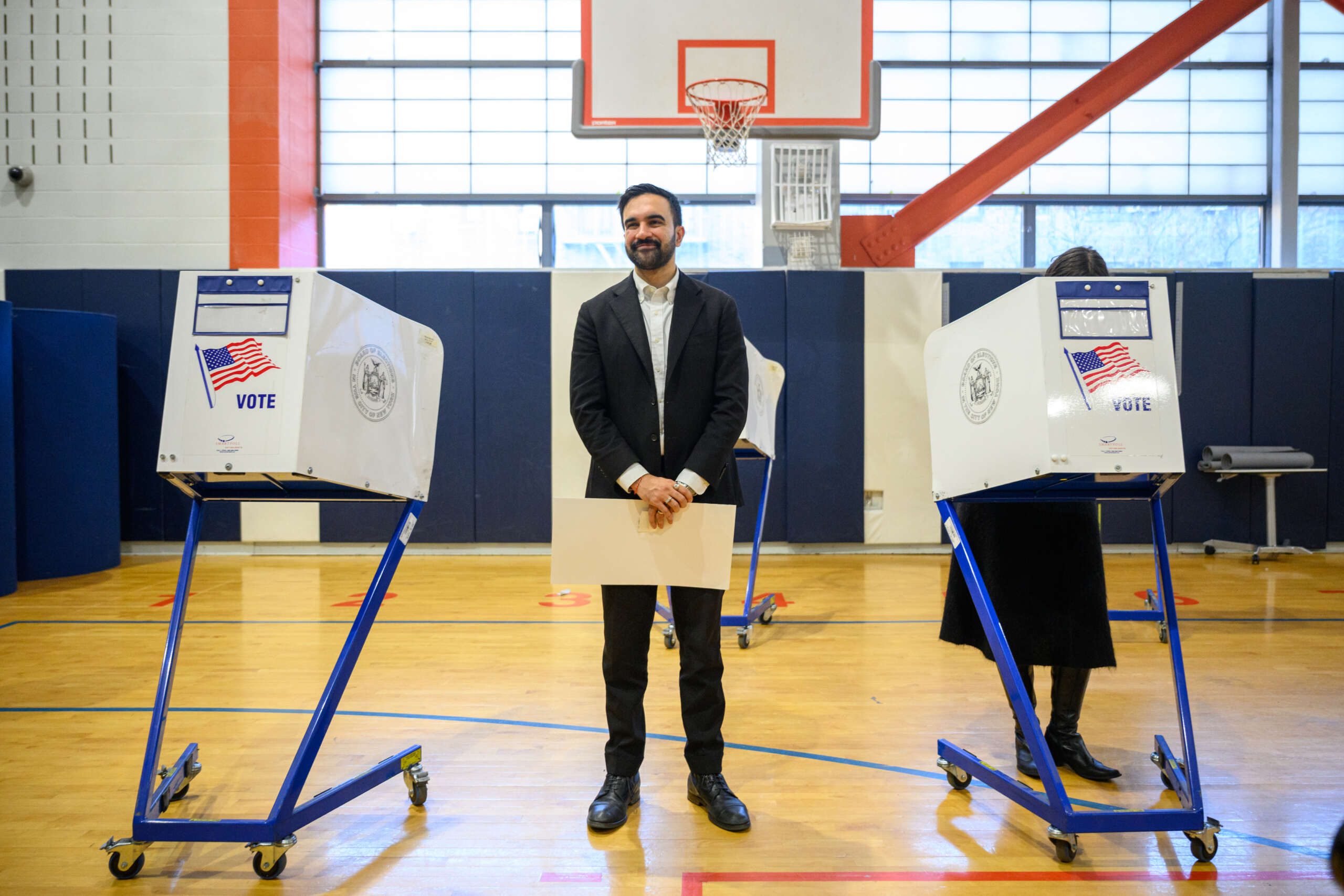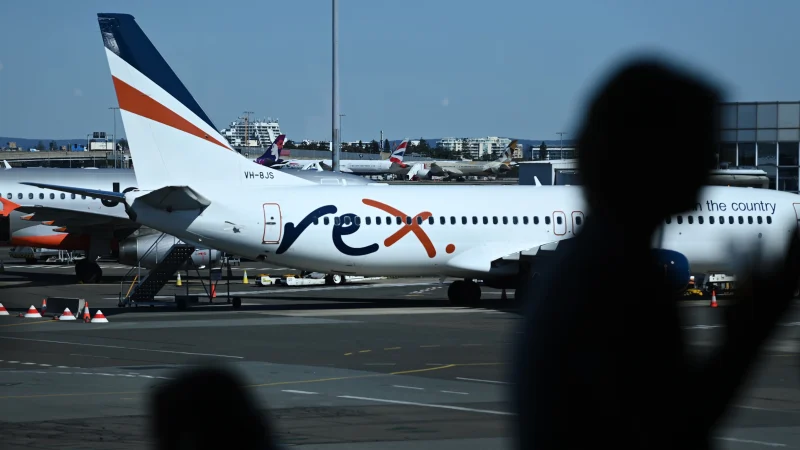Copyright truthout

With President Donald Trump threatening to flood their communities with federal troops and immigration police, and the Democratic Party struggling in the national polls, voters in major U.S. cities head to the polls today to choose between establishment Democrats and progressives focused on affordability and upending the status quo. Democratic socialist Zohran Mamdani’s campaign for mayor of New York City has garnered the most attention, both from national media and from Trump. In addition to Republican Curtis Sliwa, Mamdani is up against former Gov. Andrew Cuomo, who is running as an independent after losing to Mamdani in the Democratic primary — and who now has Trump’s explicit endorsement. Trump, who is increasingly unpopular in polls, previously reportedly tried to push Sliwa and New York Mayor Eric Adams out of the race in order improve the scandal-plagued former governor’s chances of beating Mamdani. Trump also threatened to cut federal funding for the city if Mamdani wins. Meanwhile, one of Mamdani’s top surrogates is New York Attorney General Letitia James, who brought civil fraud charges against Trump’s business. James made her first public appearance at a Mamdani rally in October after pleading not guilty to federal fraud charges handed down as part of the president’s revenge campaign. Mamdani appears on both the Democratic Party and Working Families Party lines on the New York City ballot. The Working Families Party has also endorsed Minnesota Sen. Omar Fateh in Minneapolis and community organizer Katie Wilson in Seattle, Washington, as well as a nationwide slate of candidates taking on the establishment. “People are very frustrated with the broken status quo that doesn’t seem to be working for working people, and they want to see Democrats who are standing up and fighting and not rolling over and bowing down to Trump,” said Ravi Mangla, the national press secretary for the Working Families Party, in an interview. Like Mamdani, Fateh is backed by the Democratic Socialists of America and is the front-runner among the challengers to Minneapolis Mayor Jacob Frey. The two-term incumbent has been under fire from the left since the 2020 uprising that followed the police-perpetrated murder of George Floyd. The movement for racial justice that erupted in response is still shaping local politics five years later, but Frey previously survived a challenge from the left in 2021, when voters also rejected a major public safety overhaul that would have created alternatives to the police department. In recent years, Frey has vetoed measures passed by left-leaning members of the city council, including a minimum wage hike for rideshare drivers. He is widely seen as a pro-business liberal facing off against Fateh, a socialist who upset Frey earlier this year when he won the endorsement of the Minnesota Democratic-Farmer-Labor Party (DFL), which functions as the Democratic Party in the state. Frey’s campaign appealed, claiming problems with vote counting, and the DFL rescinded its endorsement of Fateh in August. Now the DFL is not endorsing anyone in the Minneapolis mayoral race. Minneapolis (along with neighboring St. Paul) has a ranked-choice voting system, and Frey’s critics are calling on voters to rank “anyone but Frey” and instead cast ballots for an alliance of three candidates on the “Slate for Change.” Fateh, who pledges to stabilize rent and raise the minimum wage to $20 by 2028, is the leading candidate on the Slate for Change and would likely benefit from voters casting “anyone but Frey” ballots. Minneapolis has a history of welcoming refugees and is home to thriving immigrant communities. Both Frey and Fateh oppose Trump’s immigration crackdown. Frey has promoted protections for immigrants, including a policy that restricts public city employees from taking part in civil immigration enforcement. Fateh comes from and represents a Somali immigrant community and is a longtime defender of immigrant rights. Homeland Security Secretary Kristi Noem visited the Twin Cities in October to declare an expansion of immigration arrests and threatened to deploy the National Guard to counter “violent protests, violent attacks, riots and attacks on law enforcement.” Meanwhile, dozens of protesters gathered outside the building where she was speaking. A Chicago-style invasion and occupation of Minneapolis and St. Paul by immigration police and federal troops could be next. Frey says that he stands with “our immigrant neighbors,” but in 2020 he angered constituents by inviting the National Guard to South Minneapolis in the days following the police murder of Floyd. “We need mayors who are going to stand strong and going to resist attempts by the Trump administration to flood our streets with militarized forces,” Mangla said. In Seattle, voters are choosing between Katie Wilson, a longtime advocate for housing affordability and transit access, and incumbent Mayor Bruce Harrell, a pro-business Democrat backed by wealthy donors after three terms in office. A PAC supporting Harrell’s campaign dramatically outraised Wilson’s, pulling in at least $1.07 million, while the PAC backing Wilson raised $413,838, according to state data. Mangla said working people across the country are fed up and turning out to vote for change. In upstate New York, candidates backed by the Working Families Party beat establishment figures in the Democratic primaries earlier this year. Mangla said New York State Senator Sean Ryan in Buffalo, Deputy Mayor Sharon Owens in Syracuse, and Chief City Auditor Dorcey Applyrs in Albany are expected to become the next mayors of these blue Rust Belt cities, where the working class has struggled due to deindustrialization and is often overshadowed by movements out of New York City. The three candidates ran on issues such as making housing affordable, improving education, reviving downtown neighborhoods. “It represents a sea change that is not reserved to just Mamdani in New York City and its often overlooked,” Mangla said. “The Rust Belt is a very different place than New York City, and to see that happening there is really promising that a new kind of politics is coming into being.” Mangla said more victories for candidates like Mamdani, Fateh, and Wilson could be a clear sign that the working class in the Democratic base is determined to take the party in a new direction and fight back against Trump’s authoritarianism. “We believe that the issues we are pushing … are the popular issues, and what is being pushed by the corporate wing of the party is increasingly unattractive to voters,” Mangla said.



